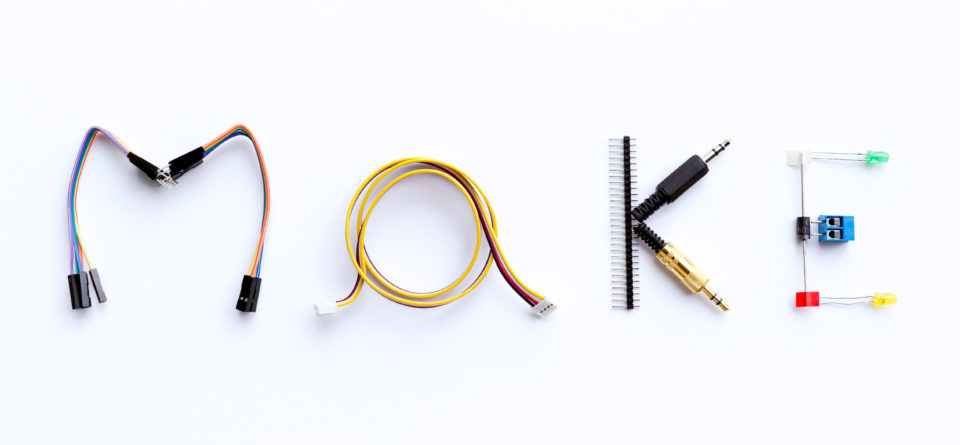After a decade of experimentation in corporates, collaborative innovation spaces have evolved. Open to new stakeholders and new concepts, these third places can now be laboratories, think tanks, incubators and even startup accelerators.
They break the codes of the company and push creativity by allowing the pooling of both human and material resources. These shared spaces in companies are called “fablabs”, “garages”, or “hackerspaces”, whose principle is based on collaborative work, sharing of knowledge and skills. In a decade of existence and experimentation, these third places have proven themselves and learned from their mistakes. They have adapted and now take many different forms, opening up to a multitude of stakeholders.
Third places to boost innovation and performance
The fablab’s primary mission is to develop innovative commercial products and services in a startup spirit. For example, in the fablab attached to Snecma’s (Safran Group) Innovation Services Workshop, a number of Snecma employees are implementing service concepts for airlines and aircraft rental companies.
The collateral benefit is organizational and social. These third places break down the silos in the company, create synergies, strengthen social cohesion and allow alternative ways of working to be tested. At Renault, the challenge of the fablab is to “reconnect engineers with manufacturing” while developing a “culture of openness”, explains a group executive. This concept is not just for engineers: a lawyer from the group, who is personally passionate about manufacturing, will be able to step outside his usual frame of reference and, why not, propose his ideas for car design.
The culture of “doing things together” works: at the CEA’s FabLab (French Alternative Energies and Atomic Energy Commission) in Grenoble, it takes only a few hours to produce a prototype, instead of a month in a traditional industrial setting. Since it opened, this special workshop has welcomed nearly a thousand users and produced 3,000 mock-ups.
Fablabs open to schools, universities, startups and public partners
The new generation of fablabs takes the principle of openness a step further by welcoming stakeholders, this time outside the company: partners, suppliers, customers, prospects, other “labs”, anything is possible! The EDF goup’s Commerce Méditerranée delegation in Marseille has created the “Med in Lab”, an idea generator accessible to employees with innovative projects, but also to schools, universities, incubators and public and private partners in the region. The innovative potential is thus boosted by internal work, combined with external technologies.
The same logic applies to PSA’s Business Lab, which has set itself the goal of “detecting, testing, and transforming opportunities into marketable products and services for the group, including outside (the) core automotive business.” Created in 2016, this “Lab” is positioned as a point of contact with startups, to detect business and technological innovations, but also with customers, to “experiment in real life with new business and new value propositions”. Five years later, the structure, which employs seven people in Paris, Singapore and San Francisco, has forged partnerships with the investment fund Idinvest and built a network of hundreds of ambassadors in the group’s 27 departments.
This has enabled PSA to sign contracts with dozens of startups around the world in strategic areas such as the factory of the future, autonomous vehicles and smart cities. Full-scale field experiments have already begun, explained Anne Laliron, the founder of the PSA lab, at the end of 2019.
More open fablabs to anticipate tomorrow’s consumption patterns
Some of today’s fablabs are themselves similar to incubators. This is the case with Dassault Système’s 3DExperience Lab, which was conceived in 2015 as an “ideas laboratory and start-up gas pedal”. Located in the United States and India, it regularly welcomes new partners: incubators, fablabs and entrepreneurial networks on a global scale. In 2019, the HEC school in France, the MIT Enterprise Forum CEE startup incubator in Poland, and the American Greentown Labs, which aims to “solve the climate crisis through entrepreneurship and collaboration,” have joined the circle. The Lab now has more than 1,200 mentors and 25 partners around the world.
And for a cooperative group like Maif, built on values of humanism and commitment, a lab could not be done without the participation of the general public. Located in the heart of Paris, the Maif Social Club, a 1,000 square meter space, opened in 2016. In this hybrid venue, exhibitions, shows, debates and workshops allow the group to gauge the public’s response to topics that will impact the brand’s coverage offering. Entitled “Rethinking the mobility of the future”, “Reinventing our ways of living”, or “Responding to the challenges of transmission”, they are all about the consumption of tomorrow. The ambition of this “club” is in line with that of all fablabs: “To promote new ideas, by giving ourselves the means to test them”.
